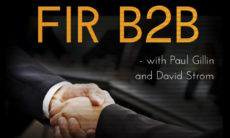Let me just state for the record that I have never hated agencies, and I know many good ones. I certainly don’t hate them now that I own one myself. But after managing dozens of agency relationships around the world for years, I truly believe that many companies make a big tactical error by trusting their agencies too much – especially when it comes to letting them own your stuff.
Quick review: It’s a general principal and part of my four pillars of good social media governance that your company should own all your stuff, both the channels themselves and especially your ad accounts. Your company should own the stuff and provision your agency with the access they need. Your agency should never be the owner and grant you access to your own stuff. Especially when it comes to your ad accounts, there are several really good reasons that you should adhere to this rule.
-
You get the credit. And trust me, you want it. It should come as no surprise that the big social media platforms (especially Facebook/Instagram) pay attention to who is paying their bills. The biggest advertisers get the most attention and white-glove treatment. So if your agency is the one that owns your paid accounts and is technically paying the bills with Facebook, they are literally stealing the credit for your budget.
-
Better support. Aside from clout, there are tangible differences in how big-spending companies are treated, especially on the support side of the house. Companies that spend large amounts of money on paid advertising receive better service. In some cases, a platform won’t even assign an account rep to your company until you’ve met a specific spending threshold. These reps and relationships can be super valuable in terms of crisis management and day-to-day getting stuff done. Trust me, there is a real difference in having to go through general Facebook support vs. being able to email your rep directly and ask directly for assistance.
-
Visibility & coordination. Without consolidating all of your spending on social media into a centrally managed ecosystem, you honestly have no idea what the company is spending on social media across the board. Especially if your organization is large and matrixed, it’s extremely possible for different business divisions to be spending thousands of dollars across dozens of ad accounts. But with no centralized management, it’s hard for the company to even say how much it’s spending on social media. In addition, it is entirely possible that different groups within the company are bidding against each other to reach the same audiences. Without centralized oversight and visibility, the company could literally be jacking the price of social media advertising up on itself by bidding against itself.
-
Save money. In addition to avoiding the scenario above where different parts of the company are bidding against each other, there’s another loophole here that centralized management will close completely. In my experience, some agencies sneak in special upcharges and fees for paying your bills with Facebook. In some cases, I’ve seen these fees be as high as 25% of the total bill. What a colossal waste of money. If your agency doesn’t own the accounts, they aren’t paying the bills, and there is no opportunity for an upcharge. Period. If you let your agency pay your bills, look through the invoices and the fine print to make sure you aren’t paying them to pay your bills. It’s a line item that often goes completely unchecked.
-
Company-wide metrics. Bottom line, if you have control of all your ad accounts and you manage them in a central place, you will suddenly have company-wide data on what you are spending on social advertising. These can be extremely valuable metrics, showing who’s maximizing their spend and who maybe is wasting money. It also allows you to answer those questions like “How much do we spend on Facebook advertising?” in a clear and pretty indisputable way when internal bookkeeping may have allocated that spend across 19 different categories because no one knows how to classify it in Finance.
-
Data retention. Let’s imagine that you decide to change agencies. If your agency owns your ad accounts, guess what? They still own your ad accounts after you terminate your relationship. They are under no obligation to turn them over to you or provide you with access. Long story short, the agency keeps your historic data and all access to it. So unless you want to start over with a fresh ad account and no historic data each time you start with a new agency, it makes way more sense for the company to own the ad account and provision your agency of record with access. If you change agencies, you simply cut off access for the old agency and provide access for the new one. But the ad account itself stays in your control at all times and you always have access to your own historic data.
-
More secure. Without completely belaboring this point, I will just say that there are about 20 separate security reasons that it makes more sense for you to own your account. In addition to better managing the massive security risk of frequent turnover at the agency, there are other risks, too. No one ever thinks it could happen to them, but if you were to have a bad ending to an agency relationship, it is completely possible that the agency could refuse to provide access or hold your ad account hostage. Don’t believe me? I’ve seen it happen.
So, if you’re one of those folks who blindly trusts your agency to run your paid advertising and you’re letting them do it from their infrastructure instead of yours, it’s time to step up and put some better protocols in place. Remember you’re the client. It’s your data. It’s your account. Stop letting the agency have too much control and putting your social media governance at risk.
This article was originally published here.





